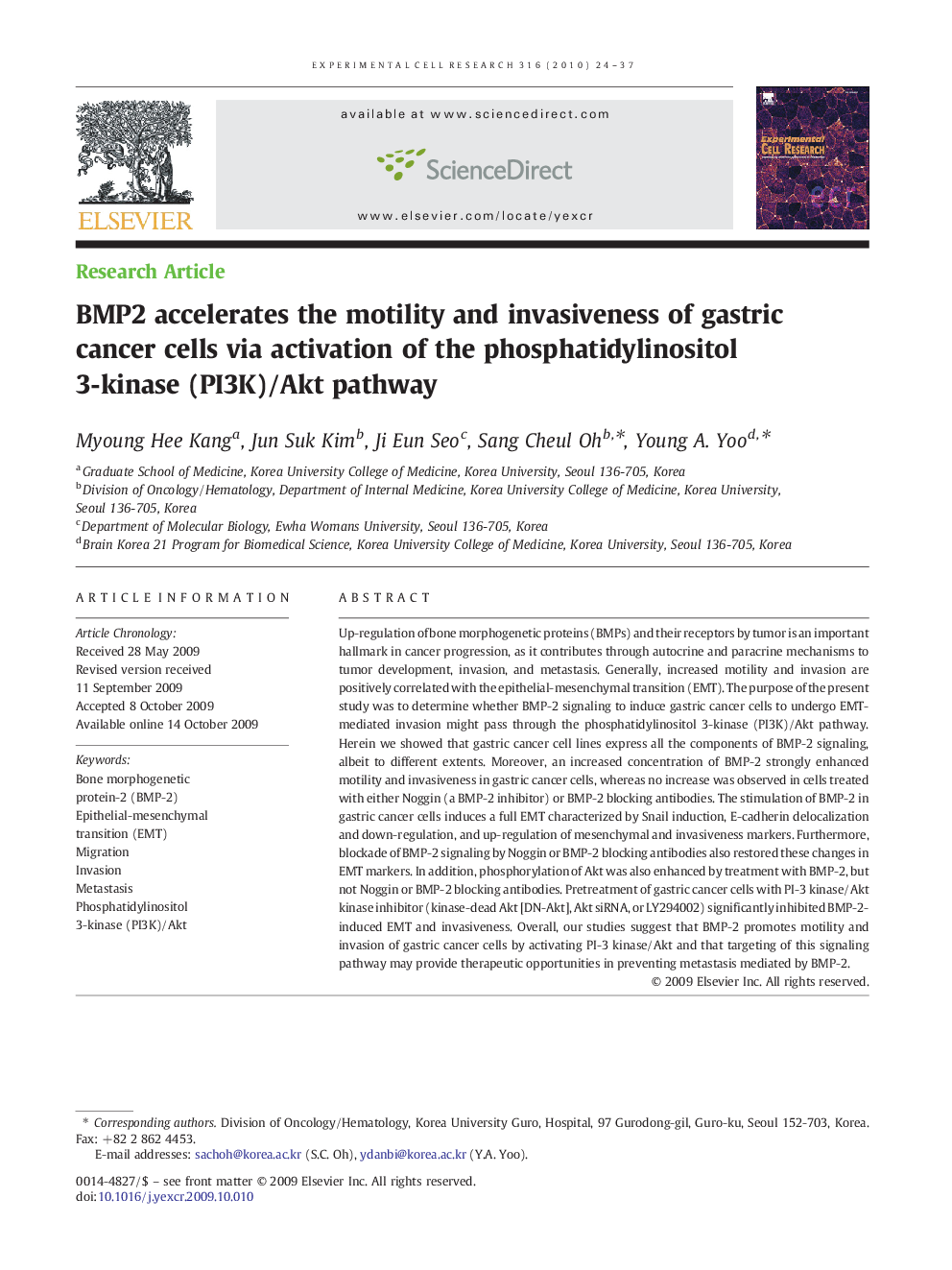| Article ID | Journal | Published Year | Pages | File Type |
|---|---|---|---|---|
| 2132189 | Experimental Cell Research | 2010 | 14 Pages |
Up-regulation of bone morphogenetic proteins (BMPs) and their receptors by tumor is an important hallmark in cancer progression, as it contributes through autocrine and paracrine mechanisms to tumor development, invasion, and metastasis. Generally, increased motility and invasion are positively correlated with the epithelial-mesenchymal transition (EMT). The purpose of the present study was to determine whether BMP-2 signaling to induce gastric cancer cells to undergo EMT-mediated invasion might pass through the phosphatidylinositol 3-kinase (PI3K)/Akt pathway. Herein we showed that gastric cancer cell lines express all the components of BMP-2 signaling, albeit to different extents. Moreover, an increased concentration of BMP-2 strongly enhanced motility and invasiveness in gastric cancer cells, whereas no increase was observed in cells treated with either Noggin (a BMP-2 inhibitor) or BMP-2 blocking antibodies. The stimulation of BMP-2 in gastric cancer cells induces a full EMT characterized by Snail induction, E-cadherin delocalization and down-regulation, and up-regulation of mesenchymal and invasiveness markers. Furthermore, blockade of BMP-2 signaling by Noggin or BMP-2 blocking antibodies also restored these changes in EMT markers. In addition, phosphorylation of Akt was also enhanced by treatment with BMP-2, but not Noggin or BMP-2 blocking antibodies. Pretreatment of gastric cancer cells with PI-3 kinase/Akt kinase inhibitor (kinase-dead Akt [DN-Akt], Akt siRNA, or LY294002) significantly inhibited BMP-2-induced EMT and invasiveness. Overall, our studies suggest that BMP-2 promotes motility and invasion of gastric cancer cells by activating PI-3 kinase/Akt and that targeting of this signaling pathway may provide therapeutic opportunities in preventing metastasis mediated by BMP-2.
